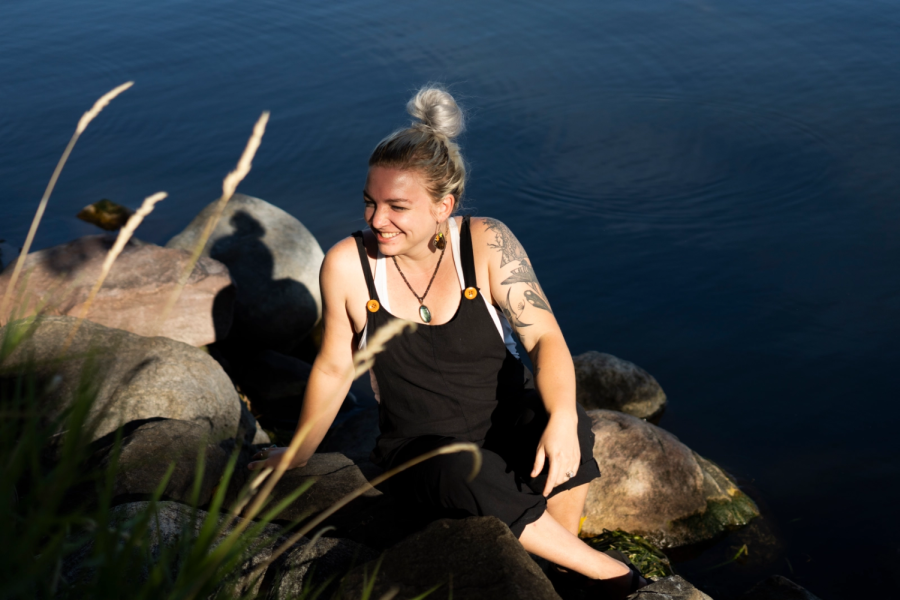Ask the Author | Tegan Nia Swanson
Tegan Nia Swanson read from her debut novel “Things We Found When the Water Went Down” at Prairie Lights on Feb. 2. The ‘Nordic eco-noir’ debut combines numerous passions of Swanson’s, from the environment and social inequity to the impact it has on communities.
February 7, 2023
Tegan Nia Swanson read her debut novel “Things We Found When the Water Went Down” at Prairie Lights in Iowa City on Feb. 2. This “Nordic eco-noir” novel came together while Swanson studied international conservation biology at Iowa State University. Since graduation, she’s taught composition, creative writing, ESL, and environmental science. She has also facilitated therapeutic creative workshops for the National Alliance for Mental Illness of Central Iowa, worked at the Rosedale Shelter in Ames, Iowa, worked in public high schools in Madison, Wisconsin, and served as a legal advocate for survivors of violence in Dane County, Wisconsin. She currently works as the systems change coordinator for End Domestic Abuse Wisconsin and serves on the Missing and Murdered Indigenous Women Task Force for the Wisconsin Department of Justice.
The Daily Iowan: Would you mind giving the readers an outline of the plot?
Tegan Nia Swanson: Well, From a straightforward perspective, it’s a murder mystery noir. It begins in the North Country at the very beginning of a blizzard, and they find a body on a lake, and the person they accused of being responsible for it is one of the main characters. Mariana Abernathy is the mother of the sort of main narrator of the story. So, in like very straightforward language, it’s a story about a mother, a daughter, and a murderer. I think it’s about community and violence that is rooted in social norms and experiences that we have as people living near each other. It’s about how the systems that we have are not effective, and they are in so many ways perpetuating the same violence that individual people experience.
DI: How has working with multiple mediums impacted your work?
Swanson: I think I am a pretty tangential thinker to begin with, so I get bored doing the same thing every day in any kind of work that I do. In any art that I do, I don’t know that I’ve ever written a story or thought about a book-length project that was just one person’s voice. It needed to have a communal narration, and I’ve talked about this a little bit with other folks about how this story, in particular, is a story about an individual and an individual experience, but it’s also a story about the community and healing and violence and trauma — and those are all community social issues. So, I couldn’t just tell it from one person’s perspective, and similarly, I felt I couldn’t just use straight prose language. So, I’m lucky that I found a publisher that was excited about that layer of experiment because it’s definitely not something I was expecting to find an easy home for.



